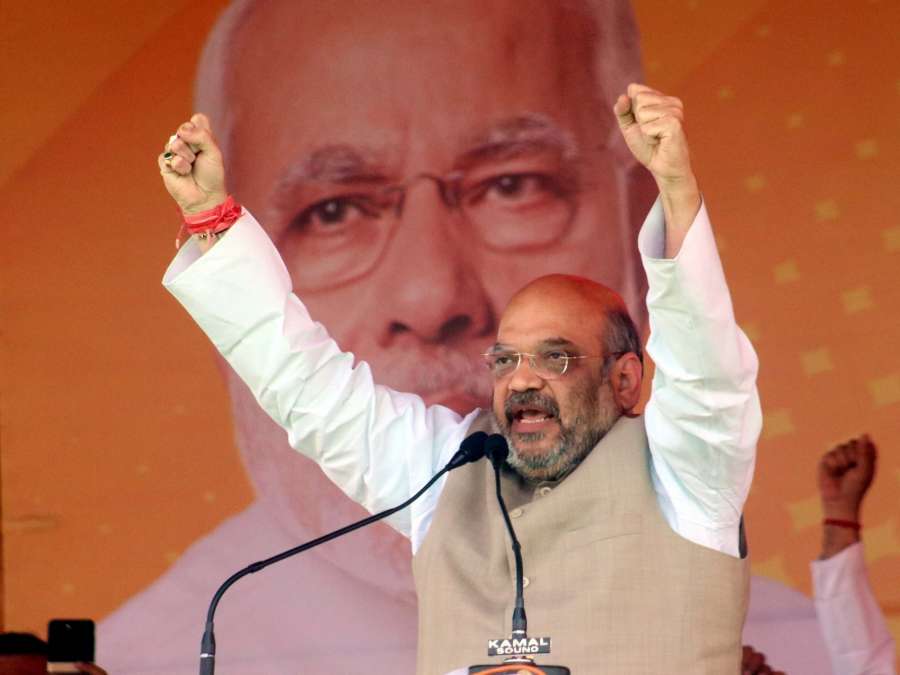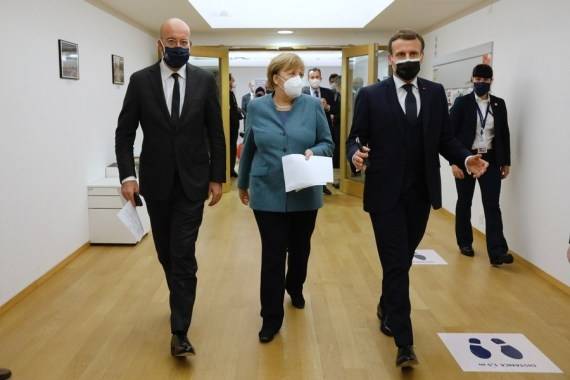Roussev, Dzhambazov and Ivanova were previously charged with “possession of false identity documents with improper intention” in February contrary – news of which emerged in August…reports Asian Lite News
Five Bulgarians living in the UK have been charged by the Crown Prosecution Service, accused of being engaged in a conspiracy to spy for Russia between August 2020 and February this year.
The three men and two women, aged between 29 and 45, are, the CPS said, accused of “conspiring to collect information intended to be directly or indirectly useful to an enemy”.
Orlin Roussev, 45, from Great Yarmouth, Norfolk; Bizer Dzhambazov, 41, and Katrin Ivanova, 31, both from Harrow, west London, will now appear in Westminster magistrates court on 26 September for an initial hearing.
They will be joined by Ivan Stoyanov, 31, from Greenford, west London, and Vanya Gaberova, 29, from Churchway, north-west London. All five have been charged with offences contrary to section 1 of the Criminal Law Act 1977.
Roussev, Dzhambazov and Ivanova were previously charged with “possession of false identity documents with improper intention” in February contrary – news of which emerged in August.
Prosecutions for espionage in British courts are very rare, with cases of spying by foreign nationals often dealt with through expulsions. However, relations between the UK and Russia have deteriorated sharply following Moscow’s decision to launch the unprovoked invasion of Ukraine in February last year.
There have been a number of high-profile Russian plots in recent years, including the murder in 2006 of the Russian dissident Alexander Litvinenko and the attempted murder in 2018 of the Russian defector Sergei Skripal.
Roussev, Dzhambazov and Ivanova had lived in the UK for several years, working in a variety of jobs, and lived in a series of suburban properties. Internet searches show that Roussev previously held technical jobs, describing him in 2009 as a network engineer and software developer.
Roussev’s LinkedIn profile did not feature a photograph. It says he is the owner of a now-dissolved artificial intelligence company, NewGenTech Ltd. He describes himself as a former adviser to Bulgaria’s energy ministry and has recently been living at a seaside guesthouse in Great Yarmouth.
Dzhambazov is described as a driver for hospitals. His Facebook page lists no friends. It features several videos of nightclubs and parties. A live stream from 2018 appears to show him teaching English to a group of mature Bulgarian students.
Ivanova describes herself on her LinkedIn profile as a laboratory assistant for a private health business. In a Facebook video for the Bulgarian Social Platform Ivanova gives advice on how to obtain basic UK qualifications. Topics include citizenship, employment, and an introduction to “British values”.
Roussev, Dzhambazov and Ivanova also worked for electoral commissions in London that facilitate voting in Bulgarian elections by citizens living abroad, according to Bulgarian state documents online.
Prosecutions follow an investigation by Metropolitan police’s counter-terrorism command, which is also responsible for investigating espionage and hostile state activity.
Nick Price, the head of the CPS’s special crime and counter-terrorism division, said: “Orlin Roussev, 45, Bizer Dzhambazov, 41, Katrin Ivanova, 31, Ivan Stoyanov, 31, and Vanya Gaberova, 29, will be charged with conspiring to collect information intended to be directly or indirectly useful to an enemy for a purpose prejudicial to the safety and interest of the state between 30 August 2020 and 8 February 2023.
“Roussev, Dzhambazov and Ivanova were previously charged on 11 February 2023 with possession of false identity documents with improper intention under section 4 of the Identity Documents Act 2010.”
ALSO READ-Sanjay Verma Criticizes Russia’s Invasion of Ukraine at UN Debate













